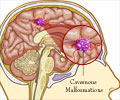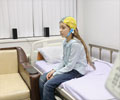Q: Which specialist should I see if I have Epilepsy or fits?
A: You should see a general Physician or a Neurologist.
Q: If someone has a seizure, does that mean he or she suffers from epilepsy?
A: If you are suffering from fever, sore throat, which is accompanied by painful swallowing that causes drooling of saliva and a difficulty in breathing with sounds while breathing and change in voice then you will need to consult the general physician to ascertain this condition. Further investigations like routine blood investigations, blood culture and Neck X-ray will be required to confirm the diagnosis.
Q: What is the difference between seizures and epilepsy?
A: Seizures are a symptom of epilepsy. Epilepsy is the underlying tendency of the brain to produce sudden bursts of electrical energy that disrupt other brain functions. Having a single seizure does not necessarily mean a person has epilepsy. High fever, severe head injury, lack of oxygen and a number of other factors can affect the brain enough to cause a single seizure. Epilepsy, on the other hand, is an underlying condition (or permanent brain damage) that affects the delicate systems which govern how electrical energy behaves in the brain, making it susceptible to recurring seizures.
Q: Who can treat epilepsy?
A: Neurologists, pediatric neurologists, pediatricians, neurosurgeons, internists and family physicians all provide treatment for epilepsy. Specialized care for people whose seizures are difficult to control is available in large medical centers and neurological clinics.
Q: Is epilepsy contagious?
A: No, epilepsy is never contagious.
Q: What should be done if there has been only a single seizure?
A: When a person has never had a seizure before, the first seizure should be informed to a doctor for careful diagnosis to recommend treatment with seizure preventing drugs, or to wait and see whether it recurs. Age, family history, and possible causes of the seizure are among the factors that are considered.
















